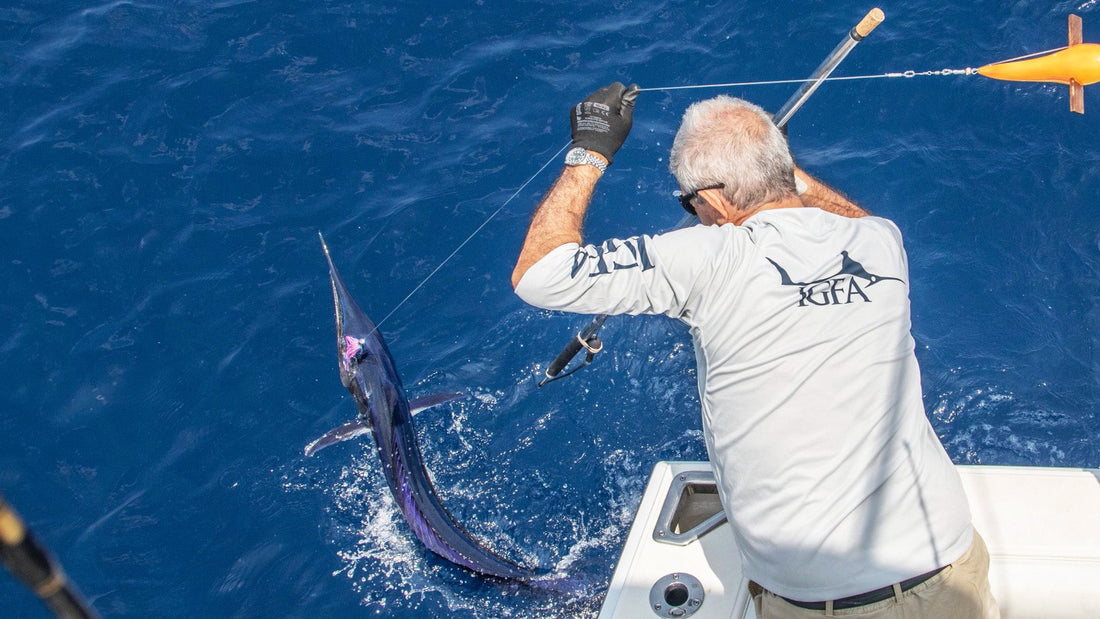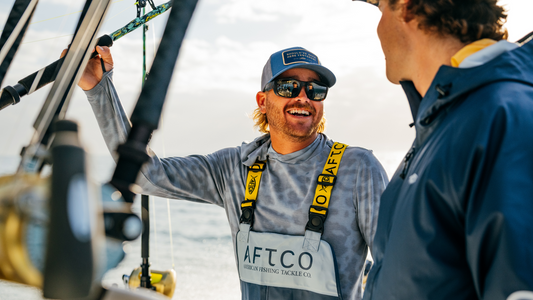
The IGFA Great Marlin Race
The Great Marlin Race began in 2009 at the Hawaiian International Billfish Tournament (HIBT) with a concept created by IGFA Trustee Bob Kurz, IGFA Trustee Emeritus Peter Fithian and renowned marine scientist Dr. Barbara Block at Stanford University. The idea was simple, have recreational anglers fishing the HIBT sponsor a Pop-up Satellite Archival Tag (PSAT) and deploy it on a billfish, with the longest distance traveled by any tagged fish winning the “race”. The concept of having recreational anglers fund and participate in billfish research through the sponsorship of PSATs provided an opportunity to collect much-needed data on billfish species in Kona, Hawaii while engaging the recreational angling community. Creating a “tournament within a tournament” only encouraged anglers to participate further.
A year later in 2010, IGFA President Rob Kramer and IGFA Chairman Packy Offield traveled to Hawaii for the HIBT and determined the combination of Dr. Block’s scientific prowess and IGFA’s reputation in the recreational fishing realm could significantly expand the program around the world through a partnership. In 2011, the IGFA Great Marlin Race was born and, twelve years later, continues to grow.
In the first year of the partnership between the IGFA and Dr. Block’s Lab at Stanford University, PSATs were deployed in Puerto Rico, Richard’s Bay South Africa, and Exmouth Australia. Since that time the IGFA Great Marlin Race has grown by leaps and bounds. As of July 2023, over 550 PSATs have been deployed in 24 countries on seven species of billfish (blue marlin, black marlin, striped marlin, white marlin, sailfish, shortbill spearfish, and Mediterranean spearfish). These devices collect information on where billfish swim as well as its diving behavior and temperature/depth residency for up to eight months. The PSATs deployed under the IGFA Great Marlin Race program have now collected data on tagged billfish for over 36,500 days and tracked enough mileage to circle the Earth over 31 times (nearly 700,000nm).

The program doesn’t just collect tracking and behavior data on billfish, it also encourages the scientific community to use this data for their own studies, which is rare in marine research because of the high cost to collect such data. To date, the program’s data has been implemented in 12 scientific publications and was used in testimony for the passage of the Billfish Conservation Act of 2012 which was hailed as, “The most important thing that has ever happened to marlin and sailfish” by AFTCO CEO and IGFA Trustee Bill Shedd.
This program would simply not be possible without the participation and generosity of the bill fishing community around the world which foots the majority of the costs for PSATs and their deployments. AFTCO has also provided critical support to this program through funding and the donation of tag sticks to deploy tags. Because of the unique vision of Bob Kurz, Dr. Block, and the IGFA, the IGFA Great Marlin Race has set the standard for citizen science research on pelagic fish species. As the program continues to grow, the team expects to expand to other regions of the world where billfish research has been historically limited and learn more about billfish to ensure they exist for future generations of anglers.





